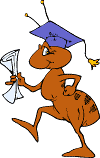Entomology, Department of

Department of Entomology: Dissertations, Theses, and Student Research
First Advisor
Anthony Justin McMechan
Second Advisor
Robert J. Wright
Date of this Version
Summer 7-30-2021
Document Type
Thesis
Citation
Campos, J.N.D. 2021, The impacts of cover crop species and termination dates on arthropod activity in a corn production system, M.S. thesis, University of Nebraska, Lincoln.
Abstract
Cover crops can reduce soil erosion, increase water infiltration, and provide an alternative strategy for weed management in cropping systems. Cover crops change the landscape composition by increasing plant biodiversity, potentially impacting pests and beneficial insects. Ecological principles suggest that cover crop management can influence the arthropods in the subsequent cash crop. However, the impact of management strategies such as cover crop species and termination date on arthropod activity in corn systems is not well understood. The objective of this study was to determine the impact of grass cover crop species (wheat, cereal rye, and triticale) in combination with four spring termination dates on arthropod activity. Field studies were conducted in 2018 and 2019 at two locations in Nebraska. Field plots followed a split-plot randomized complete block design with three or four replications. Cover crop termination time was the whole plot treatment, including four termination dates relative to corn planting (-20d, -10d, 0d, and +5d). Split-plot treatments consisted of the three cover crop species plus a no cover crop treatment as a control. Cover crop biomass and extended leaf height were collected before each termination date in the spring. Arthropod activity was evaluated using pitfall traps installed at the V3, V6, and V10 corn stages of development. Almost 318,000 arthropods were collected and classified to order. Overall, cover crops did not increase pest pressure in any location or year. These results provide growers additional information tools to manage cover crops, reduce risks, and increase beneficial arthropod populations in corn systems.
Advisors: Anthony Justin McMechan and Robert J. Wright


Comments
A thesis Presented to the Faculty of The Graduate College at the University of Nebraska In Partial Fulfillment of Requirements For the Degree of Master of Science, Major: Entomology, Under the Supervision of Professors Anthony Justin McMechan and Robert J. Wright. Lincoln, Nebraska: July 2021
Copyright © 2021 Julia Nogueira Darte Campos